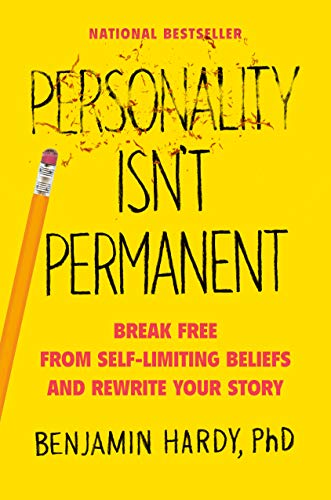Personality tests are much less useful, and much more harmful, than people think
Personality Isn’t Permanent, by Dr. Benjamin Hardy, is one of my favorite books of the past year. I read and reread the book and shared it with many others. In plain English and with compelling stories, he explains what I’ve always believed – Our past does not determine our future; we choose who we become.
Personality Tests Are Like Horoscopes
One of the most popular personality tests was developed in the early 1900s by a mother and daughter team with no training in psychology, psychiatry, or testing, and no experience in laboratories or academic institutions. Hardy says of this test, “It feels scientific, but really it’s just superstition dressed up as science….The real lesson of [this personality test] is…the incredible power of marketing.”
Wharton professor Dr. Adam Grant shares Hardy’s belief. In a Psychology Today article, Grant calls this personality test an “act of irresponsible armchair philosophy.” He references research showing 75% of test takers are given a different category when they are tested again and says, “there is no convincing body of evidence that types affect job performance or team effectiveness.” He concludes, “Palm readings and horoscopes can spark insights too. That doesn’t mean we should talk about them in our work teams.”
Personality Myth
Pop culture might lead you to believe we are each born with distinct personalities, and the key to happiness and success is “finding” our true and authentic self and then positioning ourselves in environments, careers, and relationships that match. This is false! Worse, this is dangerous!
- Why is this false? Look at the way your personality varies over time and in different circumstances. In some circumstances I am introverted and in others I am extroverted. Sometimes I make big decisions based on intuition and other times I rely on extensive research and analysis. It would be misleading to label me as either an introvert or an extrovert, or as someone who makes all their decisions based on either thoughts or feelings.
- Why is this dangerous? When we tell people their personalities are innate and unalterable we impose a “fixed mindset” upon them and tell them they are wasting their time when they set goals to change and improve. We are defining others by their past rather than their potential.
The “Authenticity” Trap
In today’s pop culture, it’s popular to be “authentic.” But listen to these wise words from Adam Grant:
“If authenticity is the value you prize most in life, there’s a danger that you’ll stunt your own development…. ‘Authenticity’ these days is usually another way of saying, ‘I have a fixed mindset. I am a certain way and shouldn’t be expected to do anything but what comes immediately naturally and easy for me. I shouldn’t have to do anything but what feels good, right now.’ Your authentic self is not who you currently are, and it is definitely not who you used to be. Your authentic self is what you most believe in and who you aspire to be.”
Adam Grant Utah State University 2017 Commencement Speech
Purpose Trumps Personality
When we have a clear and powerful purpose, we will find our personality changing and evolving to get us where we want to be. As George Bernard Shaw said, “Life isn’t about finding yourself. Life is about creating yourself.”
Therefore What?
Dr. Hardy provides several excellent tools for how we can take control of our lives and define who we want to be. Some of my favorite recommendations are:
- Goals: Clearly define who you want to be. Set specific goals. Identify one major goal and deeply commit to it.
- Reframe the Past: Learn to see the past as something that happens for you, to help you learn and grow. Stop viewing yourself as a victim of what happened to you. If you’ve experienced major trauma, confront it and process it rather than avoiding it.
- Journal: There’s power in putting your thoughts and feelings into words and putting those words in writing. Document the past and explain why you think it happened, how you feel about it, and how it impacted you. Write about your hopes, wishes, aspirations, goals, and plans. Also, write about the things you are grateful for! Don’t get overly attached to what you are writing. Just write! This is only for you and not for anyone else.
- Sleep: Go to bed one hour earlier and wake up one hour earlier.
- Redesign Your Environment: Put things in your environment to strategically remind you of what’s important to you. Stop doing things that you know aren’t aligned with your future self.
I know these are true principles. I have been greatly blessed as I have applied them in my own life, and I have seen many others blessed as they apply them in their lives. As we begin a new year, now is the perfect time to read this book and set new goals!

